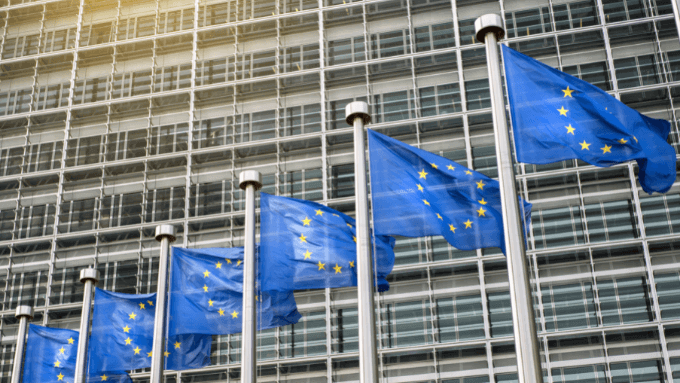European Commission Enters the Chat: Ec’s Inaugural Decision on a Labor Market Cartel in Relation to No-poach Agreements and Recent Developments in Türkiye
Introduction
Competition authorities around the world have increasingly focused on labor market infringements under competition law, issuing new regulations and guidance recently. Notable examples include the U.S. Department of Justice and Federal Trade Commission’s joint guidance, the Japanese Fair Trade Commission’s Report of the Study Group on Human Resource and Competition Policy, the UK Competition and Markets Authority’s Guidance for Employers on Avoiding Anti-Competitive Behavior, and the Canadian Competition Bureau’s Enforcement Guidelines on Wage-Fixing and No-Poaching Agreements.
Similarly, the Turkish Competition Board (“Board”) has intensified its scrutiny of labor market practices and started issuing significant decisions. Most recently, the Guidelines on Competition Infringements in Labor Markets (“Guidelines”) have been published on the Turkish Competition Authority’s (“Authority”) website on 3 December 2024. These Guidelines provide a structured framework for assessing competition in labor markets and address key concerns raised by stakeholders.
One of the key topics concerning competition in the labor markets would be regarded as no-poach agreements, which typically emerge when competitors agree not to hire or solicit each other’s employees. Such agreements are evaluated to carry the risk of hindering competition in the relevant labor markets.
In light of the foregoing, the European Commission (“EC”) rendered the very first decision where it found a cartel in the labor market, which would be expected to be the foundational one of many more to follow[1].
In this article, we will provide a summary of the EC’s decision and take this opportunity to mention the recent developments in the Turkish landscape of competition in the labor markets with a focus on no-poach agreements.
EC’s Delivery Hero – Glovo Decision
On 2 June 2025, the EC imposed aggregate fines of EUR 329 million on Delivery Hero SE and Glovoapp23 SA for participating in a cartel that distorted competition in the online food delivery market across the European Economic Area. The infringement, which lasted from July 2018 to July 2022, involved:
- A mutual agreement not to solicit each other’s employees,
- The exchange of commercially sensitive information, and
- The allocation of geographic markets.
The EC found that these practices constituted a single and continuous infringement under Article 101 of the Treaty on the Functioning of the European Union (TFEU) and Article 53 of the European Economic Area (EEA) Agreement.
This case is particularly noteworthy as it marks the EC’s first labor market cartel finding and the first sanction involving anti-competitive conduct facilitated through a minority shareholding. Delivery Hero’s gradual acquisition of shares in Glovo enabled access to sensitive information and strategic influence, replacing competition with collusion. While minority shareholdings are not inherently anti-competitive, this case highlights the risks associated with horizontal cross-ownership.
The investigation was initiated following market monitoring, whistleblower reports, and unannounced inspections in 2022 and 2023. The fines were calculated under the EC’s 2006 Guidelines, considering the duration, scope, and intensity of the infringement. Both companies received a 10% reduction under the 2008 Settlement Notice for acknowledging their participation and liability.
This decision underlines the EC’s commitment to preserving competition in digital markets and ensuring fair labor conditions, while also demonstrating the effectiveness of its settlement and leniency programs.
Turkish Competition Authority’s Enforcement in No-Poach Agreements
The Authority began addressing anti-competitive labor market practices, including no-poach agreements, in the early 2020s, earlier than many of its global counterparts. Several key decisions and the issuance of the 2024 Guidelines reflect the Authority’s evolving approach on the matter.
Private Schools in Kocaeli Decision
In a case involving private schools in Kocaeli[2] , the Board found that schools had jointly determined tuition and meal fees and entered into no-poach agreements to prevent employee transfers. Coordination occurred via WhatsApp groups and meetings, with schools agreeing not to hire each other’s teachers and to jointly determine salaries.
The Board concluded that these practices constituted wage-fixing and no-poach agreements in violation of Article 4 of Law No. 4054 on Protection of Competition (“Law No. 4054”). On-site inspections revealed systematic efforts to restrict teacher mobility, including documented refusals to hire teachers at the request of other schools. These actions were praised within the group, indicating a coordinated and sustained effort.
The Board emphasized that such conduct restricts labor market competition and deprives employees of better job opportunities and fair compensation. Some of the implicated institutions admitted to the allegations and settled the case with a discounted administrative monetary fine, while some others were fully fined as a result of the investigation.
Private Hospitals Decision
In another case, the Board investigated private hospitals in Bursa[3] for gentleman’s agreements and coordinated wage-setting practices. Hospitals agreed not to hire each other’s personnel and jointly determined salary increase ranges.
The Board found that these practices violated Article 4 of Law No. 4054 by object, regardless of their actual impact. The conduct was classified as a cartel, and significant administrative fines were imposed.
Guidelines on Competition Infringements in Labor Markets
As mentioned above, the Guidelines put a step forward in an effort to clarify the legal framework for assessing no-poach and wage-fixing agreements.
Key points include:
Definition: No-poach agreements are defined as arrangements, direct or indirect whereby undertakings agree not to solicit or hire each other’s employees.
Scope: These agreements may apply to both current and former employees. Practices requiring mutual approval for employee transfers also fall within this scope.
Legal Basis: Such agreements are assessed under Article 4 of Law No. 4054 as market allocation restrictions and are treated as cartels.
Third Parties: The Guidelines emphasize that these agreements need not be direct; coordination through third parties may also constitute a violation, and such third parties may be held liable depending on the circumstances.
Conclusion
The increasing focus of competition authorities on labor market practices reflects a growing recognition that anti-competitive conduct in employment relationships can distort not only product markets but also the fundamental rights of workers to seek better opportunities and fair compensation. The EC’s Delivery Hero/Glovo decision and the Board’s recent enforcement actions demonstrate a clear shift toward treating no-poach and wage-fixing agreements with the same severity as traditional cartels.
The Authority’s proactive stance exhibited by its early investigations and the issuance of comprehensive Guidelines positions it among the frontrunners in addressing labor market competition concerns, including no-poach agreements. By clarifying the legal framework and gesticulating a zero-tolerance approach to anti-competitive coordination, the Authority clearly signaled that its response to such practices will be strict.
Going forward, undertakings must ensure that their human resources practices comply with competition law, particularly in relation to hiring, wage-setting, and employee mobility. Internal compliance programs should be updated to reflect the evolving legislation and enforcement landscape, and companies should remain attentive against informal or indirect arrangements that may restrict competition in labor markets.
- European Commission. (2025, June 2). Antitrust: Commission sends statement of objections to company XYZ for abuse of dominant position [Press release]. https://ec.europa.eu/commission/presscorner/detail/en/ip_25_1356
- Board decision dated 03.10.2024 and numbered 24-40/948-407.
- Board decision dated 24.02.2022 and numbered 22-10/152-62.
All rights of this article are reserved. This article may not be used, reproduced, copied, published, distributed, or otherwise disseminated without quotation or Erdem & Erdem Law Firm's written consent. Any content created without citing the resource or Erdem & Erdem Law Firm’s written consent is regularly tracked, and legal action will be taken in case of violation.
Other Contents

Mergers and acquisitions are among the types of transactions that are subject to intensive scrutiny by competition authorities. As a rule, competition authorities only subject transactions that exceed certain turnover thresholds and result in a change of control to merger…

The U.S. District Court for the District of Columbia (“Court”) issued its memorandum opinion (Memorandum Opinion) on November 18, 2025, in the antitrust case (“Case”) between the Federal Trade Commission (“FTC”) and Meta Platforms Inc. (“Meta”). The FTC alleges that Meta monopolized the market…

No-poach agreements, which have become one of the most prominent concepts in global competition law in recent years, are defined in the Glossary of Competition Terms as “agreements, whether direct or indirect, whereby one undertaking agrees not to make job offers to, or hire, the employees of another...

The Competition Board (“Board”) has broad powers to request information from undertakings. The legal basis for this authority is provided by Article 14 of Law No. 4054 on the Protection of Competition (“Law No. 4054”). Under this provision, the Board may request any information it deems necessary from public...

Chapter 8 of the General Data Protection Regulation (“GDPR”) sets out the legal remedies available to data subjects in the event of a breach of their rights under the GDPR. Accordingly, each data subject has a right to lodge a complaint with the supervisory authority of the Member State in which they reside, work...

Mergers and acquisitions play a critical role in shaping the competitive structure of the market. Although such transactions can lead to positive outcomes such as the provision of products and services at lower prices, the development of new products and technologies, and improvements in quality, they may also...

Technology and the opportunities it brings undoubtedly play a key role in strengthening the competitiveness of market players. In this context, pricing algorithms that enable undertakings to monitor publicly available prices and optimize their own pricing strategies have become widely used, especially by digital platforms...

The Regulation on Fines to Apply in Cases of Agreements, Concerted Practices and Decisions Restricting Competition, and Abuse of Dominant Position (“Former Regulation on Fines”), which entered into force upon its publication in the Official Gazette dated February 15, 2009 and numbered 27142, was...

In the past years, the Turkish Competition Board (“Board”) has closely monitored the activities of undertakings operating in the retail sector. As a result of the Board’s record of administrative fines, horizontal type of violations in the retail sector have been highly publicized. Vertical violations such as resale price...

In recent years, numerous automobile manufacturers have announced their goals to reduce carbon emissions, with many brands setting net-zero carbon targets spanning from production processes to the lifecycle of their vehicles. While ongoing debates persist regarding the significantly higher carbon footprint of...

Under Article 15 of Law No. 4054 on the Protection of Competition (“Law No. 4054”), the Competition Board (“Board”) may conduct on-site inspections at the undertakings’ premises when it deems necessary in fulfilling the duties assigned to it. During the on-site inspection, the Board is authorized to examine all...

Agreements and information exchanges between undertakings in labor markets have recently been examined in various preliminary investigations and investigations initiated by the Turkish Competition Authority (“Authority”). Following the investigations in which some undertakings were subject to...

The Turkish Competition Board’s (Board) decision regarding the acquisition of the international road transport business line of Ekol Lojistik AŞ (Ekol) by DFDS A/S (DFDS) has been one of the most prominent transactions on the competition law agenda recently...

The Competition Board (“Board”) has broad powers to request information from undertakings. The Board’s authority to request information arises from Article 14 of the Law No. 4054 on the Protection of Competition (“Law No. 4054”). Under the relevant provision, the Board may request any information it deems...

Doğuş Otomotiv Servis ve Ticaret A.Ş. (Doğuş) applied to the Turkish Competition Authority for an exemption for the practice of recommending basic wages to be applied to sales and after-sales service employees of its authorized dealers and distributors...

Access to Instagram was blocked ex officio by the Information and Communication Technologies Authority (ICTA) as of 2.08.2024. Under Article 8 of Law No. 5651 on the Regulation of Publications on the Internet and Combating Crimes Committed Through These Publications, ICTA can issue an ex officio access...

It is well known that agreements between employer undertakings with regards to their employees, such as wage-fixing and non-poaching agreements, along with competitively sensitive information exchanges have been under the scrutiny of competition authorities all over the world, including the Turkish Competition...

Automotive is one of the sectors in which the world’s most significant investments are made. The Competition Board (“Board”) has been closely interested in the automotive sector over the years and has conducted various examinations and studies in this field...

Competition authorities around the world continue unabated to investigate competition concerns arising from data collection and processing activities of digital platforms and impose severe sanctions as a result...





The startup ecosystem in Turkey has experienced notable growth in recent years. In the last quarter of 2023, 81 startups secured a combined investment of around 60 million dollars. While the number of investments remained consistent when comparing the third quarter periods of 2022-2023, there was a decrease...

Hub and Spoke cartel is a type of violation that is not clearly defined and regulated under Law No. 4054 on the Protection of Competition (“Law No. 4054”). Decisional practices of foreign competition authorities, particularly the UK Competition and Markets Authority’s decisions (“CMA”), are instructive concerning...

The Competition Board ("Board") made an addition to its line of decisions on resale price maintenance with its decision on Sunny Elektronik Sanayi ve Ticaret A.Ş. ("Sunny") . In its decision, the Board thoroughly examined the allegations regarding Sunny's involvement in maintaining resale prices and restricting...

It is observed that the Competition Authority (“Authority”) has recently scrutinized various industries such as fast-moving consumer goods, labor market, pharmaceuticals, and cement. When the reasoned decisions of the Competition Board (“Board”) published in October are examined, it can be seen that the...

Jules Verne says, “Everything on earth has a limited lifespan, nothing that will exist forever can be created by human hands”. Perhaps change is the only constant concept in all our lives. Despite two major world wars and countless periods of crisis, humanity has been undergoing a great change and...

At the meeting of the Fédération Internationale de Football Association (“FIFA”) held on 16 December 2022, the FIFA Council approved the FIFA Football Agents Regulations (“FFAR”). In the FFAR, various amendments have been made, such as the introduction of a maximum service fee limit that football agents are...

Resale Price Maintenance (RPM) is still considered a hardcore restriction under the recently revised Vertical Block Exemption Regulation (VBER), which means that it cannot benefit from a statutory exemption under Article 101(1) TFEU, unlike certain other types of vertical agreements. However, it has been debated...

In competition law, it is important to accurately determine the concept of undertaking, especially in terms of mergers and acquisitions. Therefore, the concept of economic entity aims to reveal the economic units covered by the undertakings. The relationship between the concept of economic entity and family ties comes...

In these days when the Competition Board (“Board”) frequently imposes administrative fines for preventing on-site inspections and both the Competition Authority (“Authority”) and undertakings take legal and technical measures regarding on-site inspections, a striking development has occurred. In its decision...

Online advertising has become an important source for businesses for promoting products and services and meeting consumers, as a result of the rapid development of information technologies and increase in the use of internet. Delivering targeted messages to consumers at the right time through the digital...

Selective distribution systems refer to a type of distribution system in which suppliers commit to selling the contracted goods or services directly or indirectly to distributors selected based on specified criteria, while the distributors commit not to sell the said goods or services to unauthorized...

Fast-moving consumer goods is undoubtedly one of the sectors that the Competition Authority has been working most intensively since the COVID 19 pandemic. Among the most important developments of this period was the Sector Inquiry initiated on Fast Moving Consumer Goods (“FMCG”) Retailing...

In the decision of the Constitutional Court ("Constitutional Court" or "Court") dated 09.11.2022, numbered 2020/67 E. 2022/139 K. (the "Decision"), the annulment of certain articles of the Law Amending the Law on the Protection of Competition No. 4054 ("Law No. 7246") was requested...

In Turkish competition law, certain types of mergers and acquisitions are subject to Turkish Competition Board’s (“Board”) approval in order to gain legal validity. Pursuant to Article 7 of the Law No. 4054 on the Protection of Competition (“Law No. 4054”), the Board is competent to define mergers and acquisitions...

Recently, the Competition Board (the Board) had imposed administrative fines on banks and financial institutions for failing to respond to the request for information within the scope of a preliminary investigation.[i] The request for information that lays the groundwork for the administrative fine imposed by...

Amazon, a world-famous company, is an e-commerce company that operates the world’s largest online shopping platform. In the backstage, Amazon is a data-driven company whose retail decisions are mostly driven by automated systems, fueled by the relevant market data. That being said, Amazon has a dual...

The right to make on-site inspections is one of the Competition Board’s (“Board”) most important tools for revealing whether Law No. 4054 on the Protection of Competition (“Law No. 4054”) has been violated. The effective use of this authority is quite important in terms of obtaining fruitful results from...

“Harese” is an interesting Arabic word. There is a thorn that camels love very much in the desert. The camel eats the thorn with great greed. So much so that, its mouth bleeds as it eats, but it doesn't stop eating. The taste of the thorn is mixed with the salty taste of its own blood. This mixed taste drives the camel...

Turkey’s leading pay television service provider, Krea İçerik Hizmetleri ve Prodüksiyon A.Ş. (“Digiturk”), is frequently the subject of complaints made to the Competition Authority (“Authority”). In fact, the Competition Board (“Board”) issues a new decision about Digiturk almost every year. In these decisions...

The French Competition Authority (Autorité de la Concurrence), within the scope of the competition law proceeding initiated upon the complaint of Criteo SA (“Criteo”), accepted the commitments proposed by Meta Platforms Inc., Meta Platforms Ireland Ltd., and Facebook France...

While the scope of Competition Board’s (“Board”) power to conduct on-site inspections has increased with the introduction of Guidelines on Examination of Digital Data during On-site Inspections (“Guidelines”), nowadays the amount of monetary fines imposed on undertakings continue to...

The hub and spoke cartel, which is a relatively new type of violation in terms of Turkish competition law, is defined as the indirect exchange of information between two independent undertakings which are horizontal competitors on the supplier or retailer level, through another undertaking...

The settlement mechanism has only recently been introduced to Turkish competition law practice. It entered into force with the amendment made to the Law on the Protection of Competition (“Law”) numbered 4054 on 16.06.2020, and has been in effect for less than two years. In this relatively...

Due to their increasing share in the economy and rapid growth rate, e-marketplace platforms have come under the increasing scrutiny of the Turkish Competition Authority (“Authority”) as well as many competition authorities around the world...

Pursuant to the Amendment Communiqué Concerning the Mergers and Acquisitions Requiring the Competition Board’s Approval (“Amending Communiqué”) published in the Official Gazette dated March 4th, 2022 and numbered 31768, certain amendments have been introduced...

The Competition Board (“Board”) has recently published a reasoned decision in which it evaluated BSH Ev Aletleri Sanayi ve Ticaret A.Ş.’s (“BSH”) request for negative clearance or exemption with regard to its practice of prohibiting authorized dealers from making sales through online marketplaces...

Shahmaran, a Mesopotamian myth, is believed to take place in Tarsus. According to the myth, the shah of snakes is the immortal and omniscient "Shahmaran." Shahmaran is described as a beautiful woman living in her cave with her snakes...


During the COVID-19 pandemic, competitive concerns about the pricing behavior of chain markets, manufacturers, and wholesalers engaged in the retail trade of food and cleaning supplies led to an investigation by...

When the past decisions and the recent decisions of the Competition Board (“Board”) are examined, a significant increase can be observed in the number of decisions where the Board found hindrance or obstruction of on-site inspections. This situation shows that...

The European Commission began investigating the collusive behavior of Credit Suisse, UBS, Barclays, RBS, and HSBC in the Foreign Exchange (forex) spot trading market in 2019. With the recent press release dated 02.12.2021, the Commission announced that the case is now closed...


Digitalization, in particular, necessitates the rewriting of competition law rules. Competition law is at the center all questions regarding e-commerce and digital platforms. The aforementioned platforms, which have become prominent due to innovations in...

















































